By Dr. Syed Ahmed for TwoCircles.net,
Imphal: Like in the rest of the world, Muslims in Manipur are also observing Ramadan, the month of fasting, with full religious fervor. Here too, Ramadan is marked by abstaining from food and drink from dawn to dusk, iftar or breaking of fast, sehri or meal served before dawn, performing tarawi namaz, reciting Quran and charity to the poor.
In the evenings, the road along Hafiz Hatta, a large Muslim-concentrated area in Imphal city, takes the form of a large crowded market. Muslims from Minuthong Golapati, Mana Ingkhol and Hafiz Hatta come out in large number after the ashar namaj to buy the essential commodities for the ramadan. A large number of women vendors, including Muslim women, sell all kinds of local fish and vegetable at the road-side. There are numerous meat shops and grocery stores. There are also temporary stalls that sell different jewellery items specially brought for the Eid. Hotels prepare snacks and sweets for the Iftar.
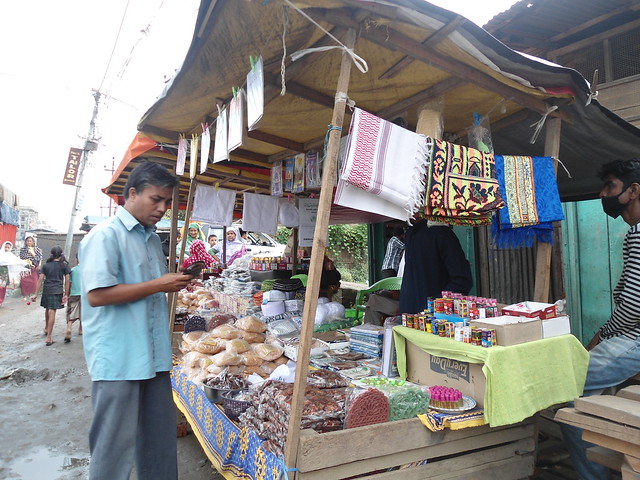
A stall at Hafiz Hatta
There are also temporary stalls that sell Islamic literatures and merchandise exclusively used by the Muslims, like Islamic calendar, time-table for namaz, attar, miswak, skull cap, jai-namaz, tasbi, keffiyeh or scarf, lungi, sewai, dates and other dry fruits. These stalls are seen here only during the month of ramadan. The shop of Khurshid Alam and the stalls put up by his sons are quite popular here. Every year during the month of Ramadan the sons of Alam put up two to three stalls selling all sorts of items which are used exclusively by the Muslims for religious purposes.
Alam has been running a shop at Hafiz Hatta for quite a long time. Muslims from far and wide come to buy Islamic literatures from his shop. He sells Islamic books and journals published by Manipuri Muslims as well as those published in mainland India. He also sells some of the best quality of attar.
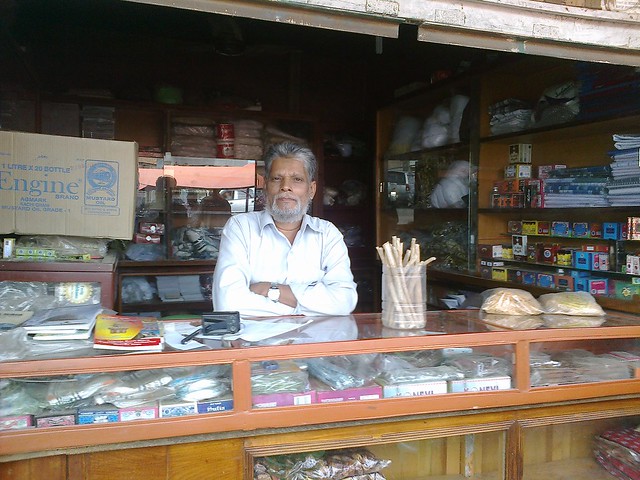
Khurshid Alam at his shop
During an interaction, Alam shares some interesting information related to his fore-fathers. His grand-father, Suleiman Mia came to Manipur in the late 19th century with his brother Nabi Rasul from UP to do business at Imphal. 64-year old Alam recollects, “My grand-father was from Chitbara Goan in Ballia district of UP. My grand-father and his brother came to do business in Manipur some 135 years back. They settled at Imphal, near the Khwairamband Bazar. My grand-father was a friend of Kasturchand Jain, one of the most popular business-man in the early part of 20th century. The godown of Kasturchand was attacked during the Nupi Lal (women’s agitation) of 1939-40. It is said that Kasturchand and my grand-father were authorized by the then Maharaja of Manipur to report the entry of non-locals every Sunday at the Rajbari Durbar. Muhammad Farid, who constructed the Jame Masjid near the Khwairamband Bazar was also from Chitbara Goan.”
Farid was as a cook of Col. H. St. P. Maxwell, who served as the British Political Agent to Manipur in the 1890s. Maxwell granted the land for the masjid at the request of Farid. The masjid was constructed in 1896.
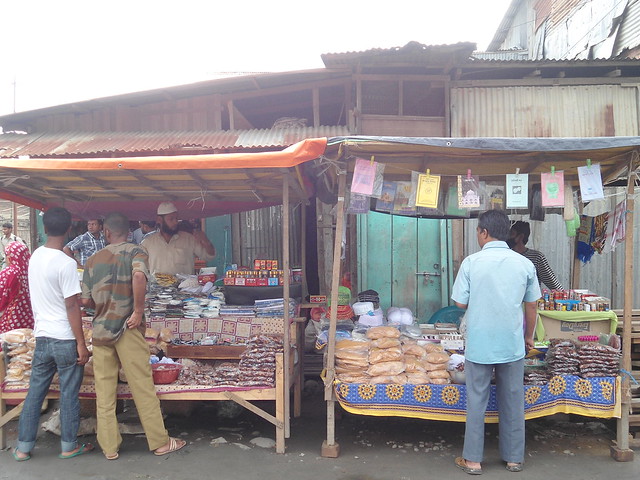
At Hafiz Hatta
“My elder brother, Abdul Hei also runs a shop at the gate of the Jame Masjid. He also earns his living by selling Islamic literatures and items used by the Muslims,” Alam added.
Stating the essence of the month of ramadan, Maulana Abdul Barik, a resident of Minuthong Golapati, said, “This is a very auspicious month for the Muslims. Allah has ordained us to observe fasting in this month. Fasting is one of the five pillars of Islam. In this month we are instructed to abstain from all sorts of immoral acts, control our desires and devote in prayers.”
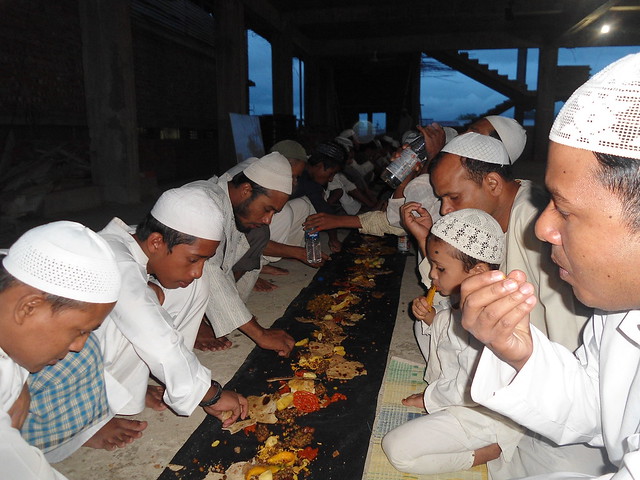
Iftar at Golapati Jame Masjid
“We have specially engaged three huffaz for the Khatam-e-Quran, or complete recitation of the Quran, in tarawi namaz. We have appealed to the Muslims in our mohalla to devote this month in fasting and prayers, and also refrain from all the immoral practices. We have asked them to devote time to read Quran. We were expecting a hot and humid weather conditions during this ramadan. However Allah has blessed us with pleasant weather this time,” the Maulana added.
However, the sudden price hike of the essential commodities in the State has badly affected the Muslims. For the last few days a massive land-slide along the Imphal-Dimapur road – the main supply route for the land-locked State – has blocked the entry of goods.
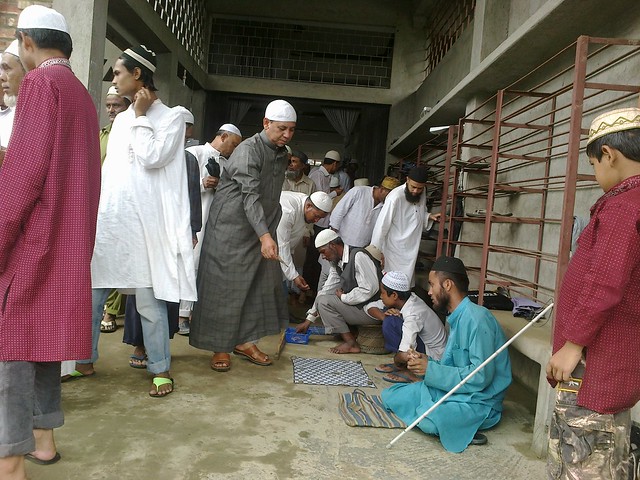
At Golapati Jame Masjid
Abdul Hei (52), who runs a grocery store at Golapati said, “The price of essential commodities has gone up massively due to the blockage of the national highway by the land-slide. The price of potato has gone up to Rs 30 per kg., onion cost Rs 40 per kg. People are paying Rs 130-140 for a litre of petrol. The Muslims, who are observing ramadan, are affected by the price rise. It is going to be very hard for the poor Muslim households to celebrate Eid-ul-Fitr.”
